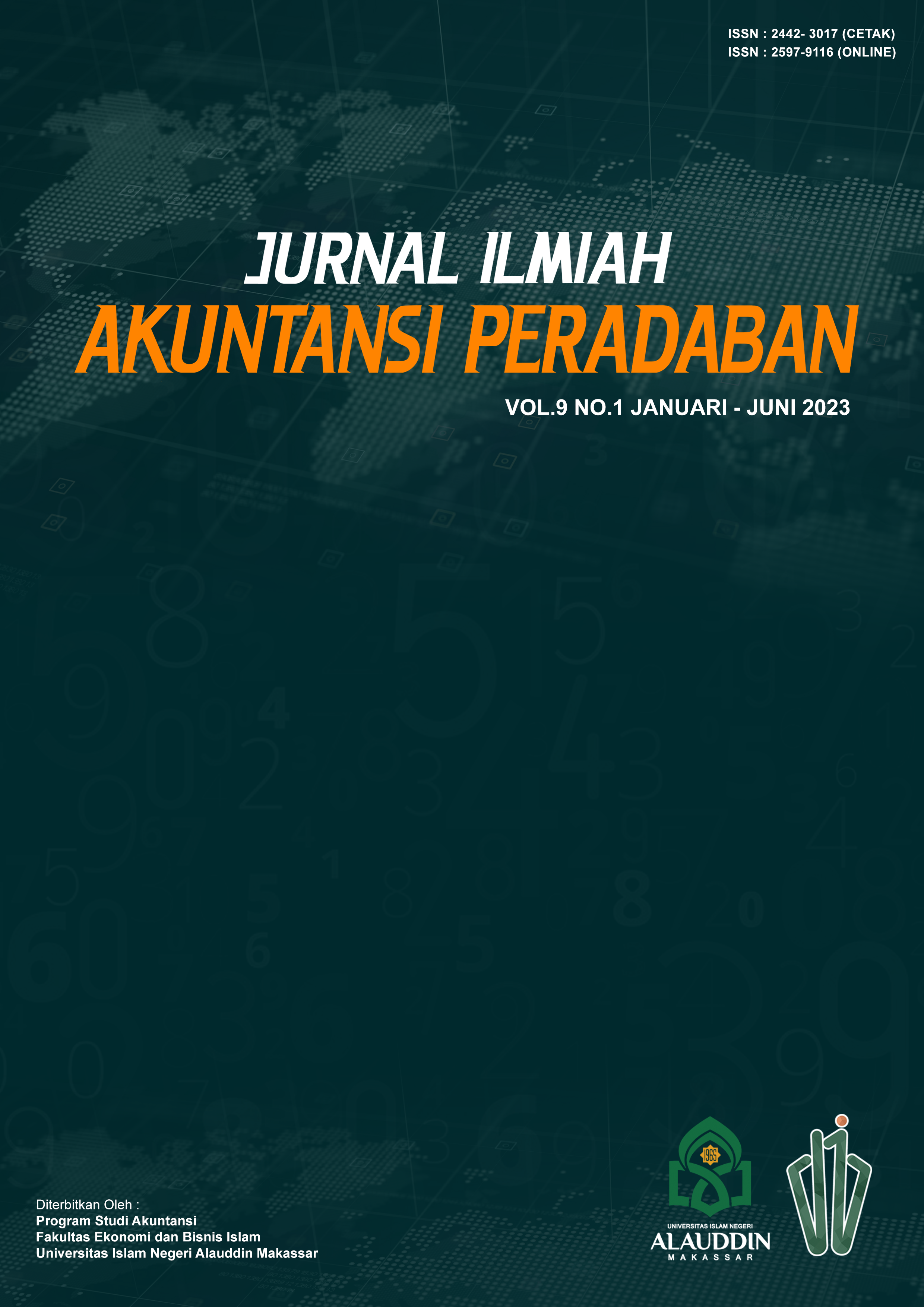PERSEPSI MAHASISWA TERHADAP PERATURAN PEMADANAN NIK MENJADI NPWP DAN DAMPAKNYA TERHADAP PENINGKATAN KEPATUHAN PAJAK
Abstract
The role of taxes in the economy in Indonesia is enormous because taxes play a role in maintaining the balance of the country's economy and helping to create social welfare. A tax collected from tax objects and subjects is used to build public facilities for society. However, some still have income above PTKP but still need to pay and report taxes. Therefore, the government is trying to improve tax compliance by establishing a new regulation that matches NIK as NPWP. By checking NIK to NPWP, a Single Identification Number (SIN) is created so that people only need to bring 1 KTP card for administrative purposes. This study aims to determine students' perceptions and understanding of the rules for matching NIK to NPWP and their impact on increasing tax compliance. This research is descriptive research with a quantitative approach using the survey method. The results showed that students were already aware of the regulations for matching NIK to NPWP and their procedures through online media and socialization provided at the University. While the cause of the failure of NIK validation to NPWP is due to not fulfilling the requirements as a taxpayer, and the confirmation process via email has yet to be activated.
Kata Kunci : Tax; NIK; NPWP; Tax Compliance
Copyright (c) 2023 Chelsya Chelsya, Verawati Verawati

This work is licensed under a Creative Commons Attribution 4.0 International License.
Authors who publish with this journal agree to the following terms:
- Authors retain copyright and grant the journal right of first publication with the work simultaneously licensed under a Creative Commons Attribution License that allows others to share the work with an acknowledgement of the work's authorship and initial publication in this journal.
- Authors are able to enter into separate, additional contractual arrangements for the non-exclusive distribution of the journal's published version of the work (e.g., post it to an institutional repository or publish it in a book), with an acknowledgement of its initial publication in this journal.
- Authors are permitted and encouraged to post their work online (e.g., in institutional repositories or on their website) prior to and during the submission process, as it can lead to productive exchanges, as well as earlier and greater citation of published work (See The Effect of Open Access).
Under the following terms of Creative Commons:
-
Attribution — You must give appropriate credit, provide a link to the license, and indicate if changes were made. You may do so in any reasonable manner, but not in any way that suggests the licensor endorses you or your use.
-
NonCommercial — You may not use the material for commercial purposes.
- No additional restrictions — You may not apply legal terms or technological measures that legally restrict others from doing anything the license permits.


